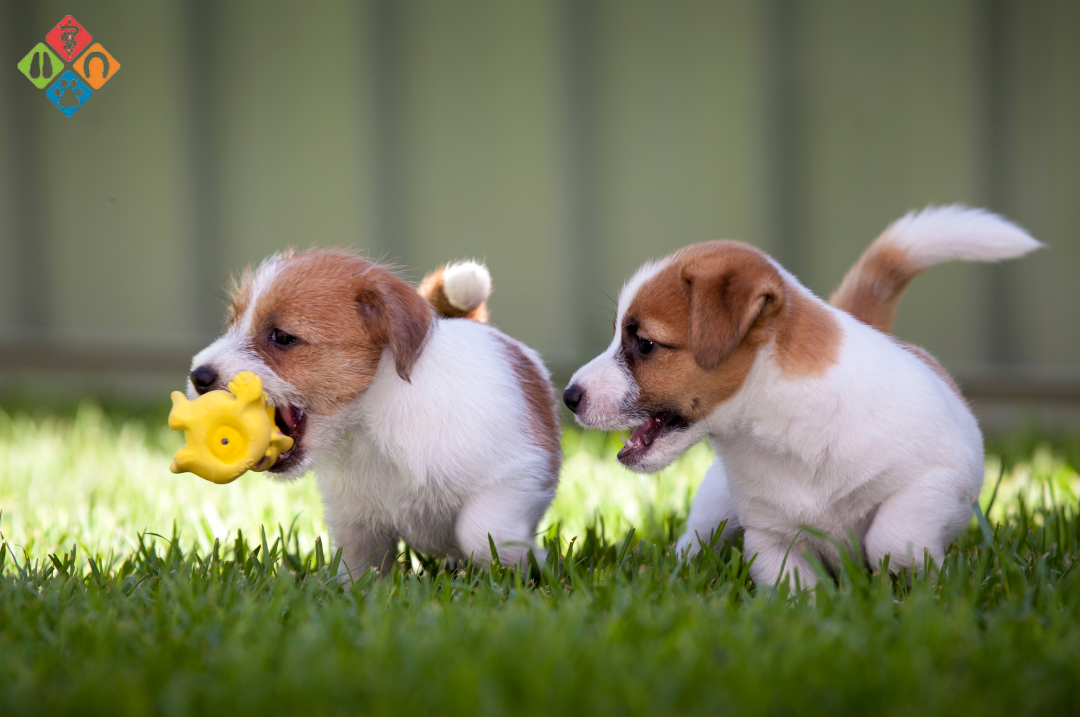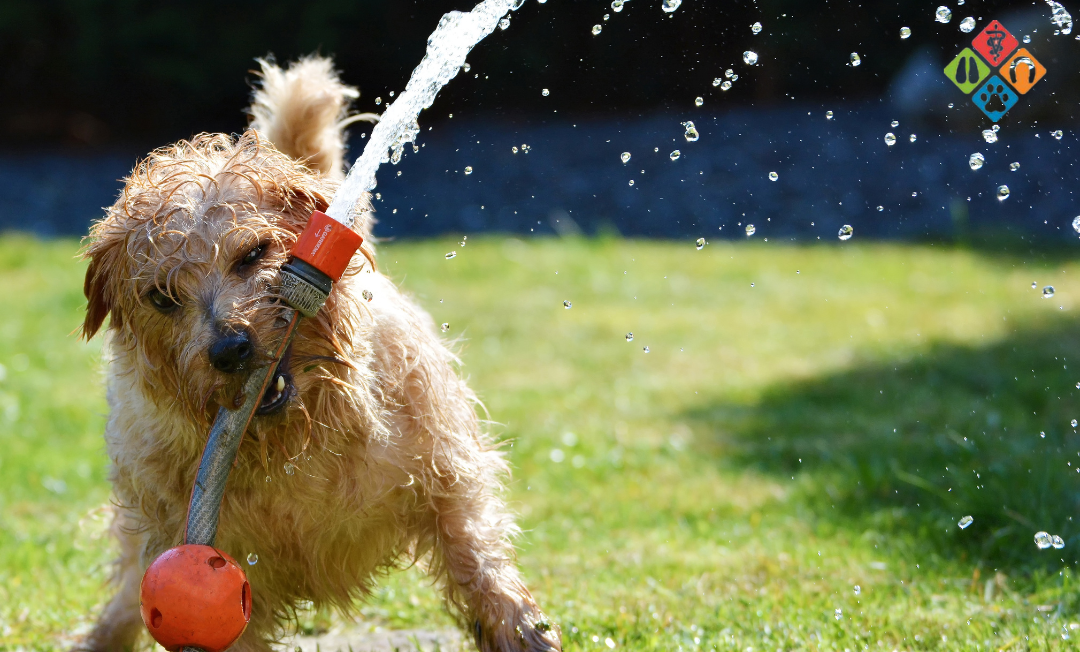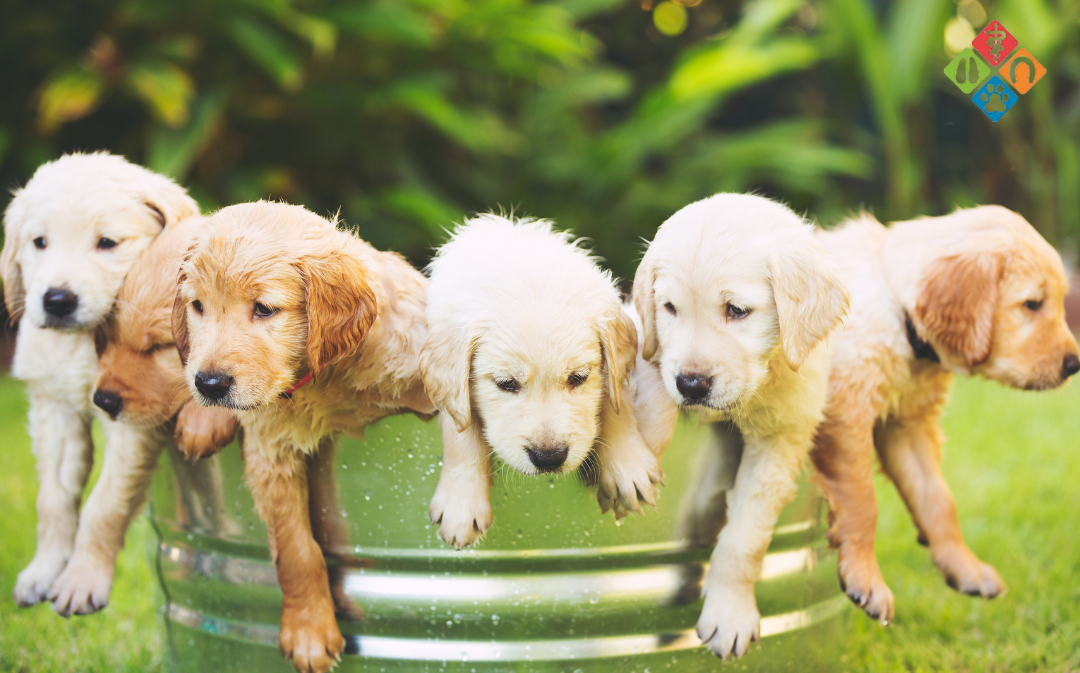As you delight in your puppy’s adorable antics and deal with all the trials and tribulations of puppyhood, socialization is an important item to have on your list of priorities.
What is socialization?
Socialization is teaching your puppy how to interact with their world. Just like a thorough vaccination plan protects your dog’s physical wellbeing, socialization is like a vaccination plan for their mental wellbeing. This doesn’t just mean introducing them to other dogs, but teaching them how to handle a variety of situations and experiences. If they are successfully introduced to a large range of experiences, they will have less anxiety in new situations, be less prone to aggression, and will have a better bond with their owners. They become more confident, comfortable, and better-behaved adults.
How do you socialize your puppy?
- The most receptive period of socialization for puppies is between 3 and 12 weeks of age.
- During that window, focus on providing a variety of new experiences in a way that creates a neutral or positive interaction.
- Make sure your puppy feels safe and has the opportunity to express their curiosity.
- Reward positive responses and behavior you want to see with treats or praise.
- If a situation makes them panic, find ways to decrease the exposure to a level they can handle.
- Give them positive experiences in that situation by rewarding behavior that shows they are calming down.
- As they become more comfortable, you can gradually increase the level of exposure, sometimes over several sessions. In this way you will desensitize them to that particular experience and teach them that new experiences don’t have to be scary.

Have a P.L.A.N.!
Create opportunities to explore each of these categories (People, Location, Animals, and Novelty) as much as possible.
People: Examples include men, women, children, toddlers, babies, and teenagers. Include a variety of height, stature, beards, and accessories (hats, coats, scarves, glasses, umbrellas). Make sure the exposure is a positive experience! If these people have exposure to other dogs (until your puppy is fully vaccinated) consider having them wash their hands and ask about the health of the dogs they are in contact with.
Location: Examples include homes, businesses, leash walks, sporting events, and puppy classes. Be careful to avoid areas with lots of dog traffic such as dog parks and pet stores to limit exposure to diseases and parasites. Don’t take your puppy around crowds of people until they are confident and comfortable around strangers.
Animals: Ensure that pets your puppy encounters are vaccinated and on parasite prevention. Also make sure they are calm and well-behaved. Remember, the goal is to have a positive experience! Ideally, you want to find a dog experienced with puppies who is tolerant but also can appropriately teach manners. Often puppy class instructors will have older dogs to put into the mix that offer good interactions with puppies. Cats and other pets are also good to expose them to as long as they are tolerant and you don’t allow your puppy to be too exuberant with them.
Novelty: Seek out new experiences with sights, sounds, and movement. Examples include rustling plastic bags, vacuum cleaners, basketballs, disposable water bottles to chew on, and traffic. Consider different things to walk on such as grass, carpet, linoleum, tile, and pavement. Pay attention when something is scary, and work on those experiences that seem to be an issue.

For More Information…
The AKC (American Kennel Club) has a great article on puppy socialization (https://www.akc.org/expert-advice/training/puppy-socialization/) as does UC Davis (https://www.vetmed.ucdavis.edu/sites/g/files/dgvnsk491/files/inline-files/Puppy_Socialization.pdf).
Puppy classes are another great resource. There are also puppy socialization checklists that you can download; turn it into a scavenger hunt for you and your pet! And of course, the veterinarians and staff at Scott County Veterinary Clinic are happy to answer any questions you have.
If you invest in socializing your puppy, it will pay dividends of a stronger bond with your pet, reduced anxiety, and greater well-being for your pet for years to come.
Dr. Terrill Hubert, DVM @ Scott County Veterinary Clinic PLLC

